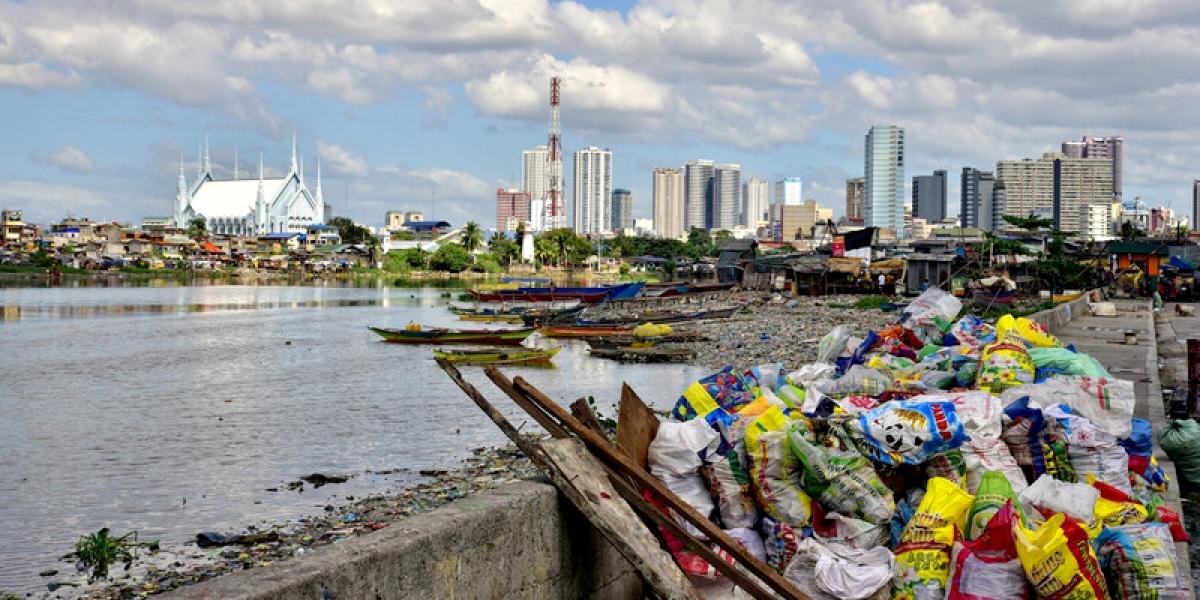In 2021, Legazpi City in Albay, Bicol produced 80 tons of trash each day, which is a 35.83% increase since 2010. According to the Waste Flow Diagram Tool, the city was expected to generate a total of 28,969 tons of trash that year. However, only 18,349 tons were collected properly, leaving 10,620 tons uncollected.
To improve its trash collection process, Legazpi City is introducing a Smart Waste Management System and Staff Tracker Application. With the digital application, Legazpi City can streamline trash collection and transportation. The system integrates an efficient waste collection approach with a strong tracking mechanism, which adjusts truck routes to save time and fuel.
How the app was developed
The app is part of the Healthy Oceans and Clean Cities Initiative, spearheaded by the United Nations Human Settlements Programme (UN-Habitat) and financially supported by the Japanese government. The Office of the City Environment and Natural Resources, along with local institutions, worked together on this project to tackle marine plastic pollution.
The $3-million initiative was launched in Cagayan de Oro, Calapan, Davao, Legazpi, Manila, and Ormoc, running from 2020 to 2023. Through this program, the Smart Waste Management System and the Staff Tracker Application were created.
The project’s focus on marine pollution comes from the fact that marine litter harms the environment, marine ecosystems, and public health. Despite having high trash collection rates in Southeast Asia, the Philippines is still the world’s third-largest contributor to marine litter.
The goal is to reduce marine plastic pollution by boosting the ability of institutions to support and implement the Philippines’ National Plan for managing marine waste. The project also aims to improve data collection and waste management systems.
Leveraging smart technology
Since June 2023, the app has been implemented in Legazpi City, combining waste collection with a robust tracking system to efficiently gather Extended Producer Responsibility (EPR) data. It utilizes advanced technologies such as the following:
- Internet of Things (IoT) and Global Positioning System (GPS)
These allow real-time monitoring and data analytics, allowing the app to gather information
on waste generation from Material Recovery Facilities (MRFs) that city trucks service. This way, waste collection routes can be optimized, cutting down on travel time, operational expenses, and carbon emissions.
- Smart sensors
Garbage trucks are equipped with smart sensors to accurately record solid waste data in real time. By providing detailed information about the types and amounts of waste processed at each barangay’s MRF, the app supports city planning by enabling the local government to formulate more effective waste collection and management strategies.
- Satellite remote sensing and machine learning
These technologies help conduct Plastic Hotspots Mapping to identify areas with plastic pollution in the Macabalo River and Albay Gulf. This project helps establish a baseline of where plastics are found or building up in these important water bodies.
- Unmanned aerial vehicles (UAVs)
Legazpi City used AUVs drones to capture aerial photos, which were then imported into GIS software with AI capabilities. This software detects floating plastics and other objects in the images. With this technology, the city created Plastic Deposit Heat Maps.
The app also has these features:
- Municipal Solid Waste Data Management where waste information can be obtained from the barangay’s MRF.
- MRF monitoring to guarantee that recyclables from barangay MRFs are consistently picked up by city trucks.
- Emergency SOS button for immediate assistance and alerting emergency services.
- Real-time staff tracking for monitoring and managing employee locations and activities.
These innovative methods enhance science-based planning and policymaking while providing a replicable model and foundation for further assessments. By integrating smart technology, we move towards a sustainable future where waste is valued as a resource.
The app not only boosts operational efficiency but also creates and securely stores an auditable dataset. Legazpi City’s waste management system addresses current needs and paves the way for a data-driven and effective approach.
Results and challenges
The application significantly cut fuel costs and saved time for city trucks. It worked well due to its thorough design and the training programs provided by the government, which helped truck drivers become skilled in using the staff tracker app.
However, dependence on internet data, particularly in areas with poor connectivity, was a major challenge. To improve similar projects, exploring alternative data connectivity options, like offline capabilities or backup systems, could help address issues related to internet reliance.
Another difficulty was guaranteeing the accuracy of waste data recording. This highlights the need for strong data validation protocols, regular audits, and quality checks to maintain data integrity and project reliability.
Focusing on skill development, flexibility, and proactive issue resolution can enhance the success of similar projects and prepare for unforeseen challenges in waste management. Expanding data integration methods and applying rigorous data verification procedures are crucial for the project to be sustainable and successful.
Proactively involving stakeholders through frequent feedback sessions promotes a team-oriented approach, ensuring the project aligns with the community’s changing needs and challenges.
By addressing these challenges, Legazpi City and other areas can build on the successes of this initiative and drive continuous improvement in waste management practices.
Source: Optimizing Municipal Waste Collection in the Philippines through a Smart App


